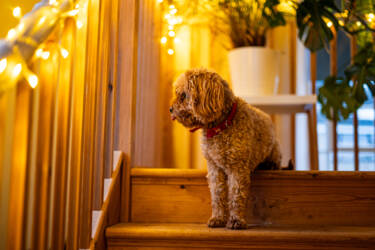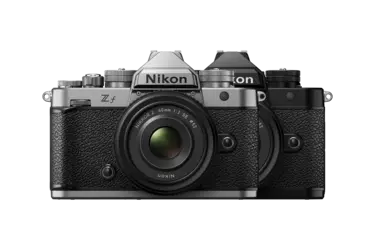The NIKKOR Z 50mm f/1.4 reviewed

Nikon’s new ‘nifty fifty’ is put through its paces by Nikon magazine editor Derek Harbinson
A fast 50mm prime lens should be in everyone’s camera bag. It’s a classic, with a human’s-eye angle of view, great light-gathering capabilities via that fast aperture, a close focusing distance and the versatility to handle a huge number of styles and scenarios.
It’s also often the first prime beginners get when they step on from a kit lens and is a great way to start exploring depth of field and bokeh.
The latest NIKKOR iteration, the Z 50mm f/1.4, offers up all this and more, with a package that is sure to be the start of experimentation in photography for a great many people.
First impressions
Out of the box and on my Nikon Zf, the lens looks and feels well balanced. It’s no pancake, at 86.5mm long, but it’s also small enough to be pretty inconspicuous without the hood (although I would always have a lens hood on, especially when walking around outside with a camera). The wide focus ring is smooth, with just the right amount of resistance when manual focusing and the control ring can be set to a number of different functions. I personally use the control ring as an aperture ring, but you can easily change settings in the camera Custom Settings menu.

Zf + NIKKOR Z 50mm f/1.4, 1/125 secs, f/5, ISO 100, ©Derek Harbinson
Settings
If you’re new to fast primes, one of the best ways to experiment is to set the camera to Aperture Priority and the lens to its maximum aperture, f/1.4. This way you’ll immediately see the difference it makes when compared to your slower aperture kit lens. But this is also a lens for all sorts of scenarios, so try it out in various camera modes and see how the results change. Autofocus is fast and accurate, as you would expect.
In use
I tried a range of different styles of shots with this lens to see how it would perform in different scenarios. What a great 50mm prime does is give you options, especially if you’re just out for a walk and don’t want to carry a whole bag. Landscapes, close-ups, architectural details, people in their environment, animals – the NIKKKOR Z 50mm f/1.4 will get them all in great detail, with that natural human’s-eye field of view.
Landscapes
The weather is changeable where I live up in the hills in the middle of England, and a day of bright sun was followed by a day of thick fog, giving a good opportunity to try some different things.
There are lots of dry stone walls and structures around this part of the world, which always make for interesting images, especially in bright sun with harsh contrast. The NIKKOR Z 50mm f/1.4 is a great lens for these sorts of images, forcing you to compose by moving yourself around to get the framing you want, balancing the earthy browns and greens with the clear blue sky.


The following day, the weather had changed and so the images get a sense of detachment, with the world disappearing towards the rear.


Dog portraits
Weather like this means some indoor shooting is called for, so I tried the lens out on one of our dogs, who sits on the stairs like a guard in a watchtower, staring out the window. The fairy lights on the stairs give a warm light and, with the NIKKOR Z 50mm f/1.4 open wide at f/1.4, provide some nicely blurred accents.


Getting up close
The NIKKOR Z 50mm f/1.4 is also great for playing with close-ups. Although not a macro lens (and you can read here about how it compares to NIKKOR macros), it’s great at exposing detail. Here is a quick close-up shot, in natural light, of a cushion. The colours and the detail in the strands of wool came out really well… this is a lens that loves to get close to the action with a minimum focus distance of 0.37m from the sensor.

Nikon Zf + NIKKOR Z 50mm f/1.4, 1/50 secs, f/1.4, ISO 180, ©Derek Harbison
Experimenting with bokeh
This is a good thing to try with a fast prime lens and can create abstract images from a simple string of fairy lights. Turn off your autofocus, otherwise it will keep trying to make the lights sharp, and use manual focus to defocus to the amount you like. The nine-bladed, rounded aperture ensures a pleasing, natural and rounded bokeh that minimises any harshness and unwanted effects.

Nikon Zf + NIKKOR Z 50mm f/1.4, 1/250 secs, f/1.4, ISO 100, ©Derek Harbinson
Interior details
Staying indoors, I took some environmental and product shots in my pottery studio. A lens like the NIKKOR Z 50mm f/1.4 is great for environmental work, showing what a person there would actually see, with the advantage of that fast aperture to achieve great depth of field to focus on what’s important in the image.

Nikon Zf + NIKKOR Z 50mm f/1.4, 1/50 secs, f/5, ISO 2500, ©Derek Harbinson
Conclusion
The 50mm prime has had an unfair reputation in some quarters as a ‘jack of all trades, master of none’. For me this fails to understand what a lens like the NIKKKOR Z 50mm f/1.4 is for. Sure, you’re not going to take expansive landscapes as you would with a 14-24mm, and it’s not a close-up portrait lens like a short telephoto 85mm, 105mm or 135mm. And you’re definitely not getting that bird high up in the tree the way you would with a 400mm. Those are specialist lenses for specialist subjects. But if you want a sharp, reliable, versatile lens to put on your camera to go out for a walk in the day (or night) and capture interesting sights, or take pictures of pets, friends and family, parties, products, still life and a whole host of other things, the results will speak for themselves.
Get to know our NIKKOR lenses
Discover the NIKKOR Z 50mm f/1.4

Unlock greater creativity





